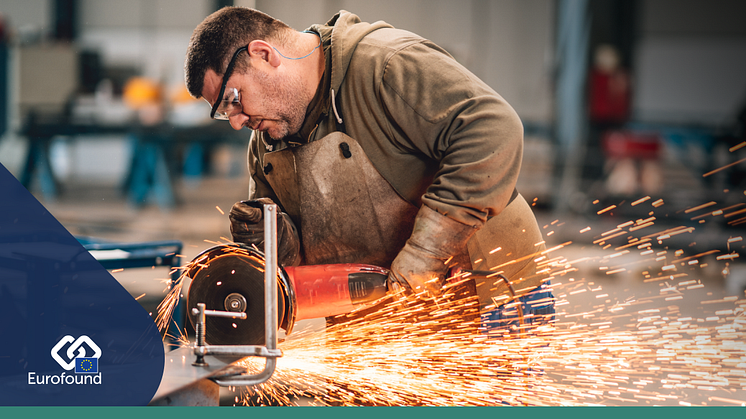
News -
Poor job quality widespread among COVID-19 essential workers
Poor job quality, including high emotional demands, working at high speed and to tight deadlines, is widespread among several of the sectors and professions deemed essential, key or critical during the COVID-19 pandemic. In the case of health and care workers in particular, half of them were in strained jobs – meaning that their work put their health and well-being at particular risk. The strain faced by essential workers on a daily basis calls into question Europe’s ability to respond to future crises.
Eurofound’s new policy brief Job quality of COVID-19 pandemic essential workers analyses the working conditions of the diverse collection of workers who ensured the functioning of societies in Europe during the COVID-19 pandemic. These workers maintained access to healthcare, long-term care and other essential goods and services, including food, water, electricity, the internet and waste treatment.
The study distinguished 11 groups of critical workers based on Eurofound’s European Working Conditions Telephone Survey (EWCTS) 2021 data: health and care workers, education workers, office workers, cleaners and refuse workers, food system workers, managers and legislators, manual workers, ICT workers, scientists and engineers, protective services workers, and transport workers. In line with this definition, 45% of workers in the EU in 2021 could be considered critical workers, and at least a third of the total workforce in each Member State. In Denmark and Luxembourg, over half of the workforce could be considered critical workers.
Each group experienced specific job quality and working life challenges during the COVID-19 pandemic. For example, cleaners and refuse workers have notably poor job quality, many having jobs combining high levels of physical demands and risks with high job insecurity. The group also stands out as having poor support from colleagues and managers, poor access to training and learning, and very limited opportunities for career advancement. In addition, half had difficulty making ends meet, and many did not have formal representation in the workplace.
Several critical activities are currently suffering from labour shortages, notably hospitals and healthcare, education, food and drinks, industrial cleaning, and local and regional government. Improving working conditions and bringing pay in line with the value of these jobs to society is paramount to addressing this. Policies and practices in these sectors should also aim to develop sustainable work practices, including supporting and developing workers’ skills, promoting work–life balance, and ensuring public investment in working conditions.
Speaking on the publication of the report, Eurofound Working Life Research Manager Jorge Cabrita emphasised the importance of improving the job quality of essential workers, ‘A couple of years ago people in Europe were applauding essential workers in the street, but if we are serious about recognising the value of these workers the emphasis must be on improving job quality and developing sustainable work practices, including fair pay. This is not only important for the workers in question, but also for Europe’s resilience in the crises ahead.’
Download the policy brief:






